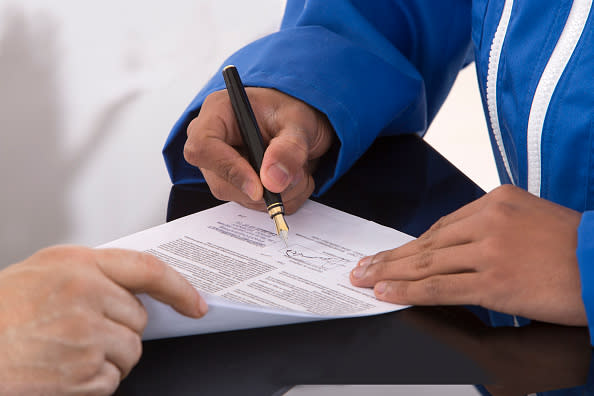PPI claims deadline: here's everything you need to know

People angling for compensation regarding mis-sold payment protection insurance (PPI) will have until 29 August 2019 to lodge any outstanding claims.
The final deadline has been set by the Financial Conduct Authority in an effort to finally draw a line under one of the UK’s biggest banking scandals.
Millions of customers have claimed, billions has been set aside by banks and a new mini-industry has been established of claim chasing companies.
Here’s everything you need to know about the scandal:
What is PPI, what happened?
Payment protection insurance was sold by banks and credit card providers, among others, from the early 1990s as a measure to cover customers should they fall ill, or lose their job, and be unable to make payments on mortgages, loans, credit cards, catalogue cards, store card etc. Many customers were either unaware they had signed up to this extra cost or did not fully understand how they could be paying more each month for something they’d never benefit from.
What scale are we talking about?
Mis-selling took place on an industrial scale. It’s estimated some 45 million PPI policies were sold over 20 years from about 1990 – consumers are realising they were sold three or four policies on everything from car loans to store cards.
So, how much money is involved?
Such is the scale, it’s been difficult for the industry to put an exact figure on it, although the now defunct FSA told MPs these policies were worth about £44 billion. The biggest five banks – Lloyds, Barclays, RBS, HSBC and Santander – have collectively set aside more than £35 billion to cover the cost overall, but the bill for the industry could have been much higher. The average payout has been £2,000, although some have been repaid tens of thousands.
When did the warning bells start to ring?
Money watchdogs first began warning about a potential mis-selling scandal in the early 2000s and a super-complaint was launched by Citizens Advice in 2005, which really set the compensation claim ball rolling. In August 2010, the FSA (now Financial Conduct Authority) told the industry to clean up its act – and ordered providers to contact customers and compensate them for mis-sold policies.

What’s happened since?
The banks challenged the decision but lost a court ruling in 2011. A new business opportunity was created with a raft of cold-calling companies chasing claims. Instead of complaining to the banks for free, millions of people used third parties to pursue claims and won money back – but lost all over again. Last year, MPs said some 12 million missed out on about £5 billion in compensation that was taken by ‘middle men’ companies.
Do I still have time to claim?
The FCA has now set a final date for claims to be made – 29 August 2019 – so there is still time to claim.
What do I have to do?
Many people are not sure if they were sold PPI but it’s relatively easy to find out. Check through your old loan agreements and look for terms such as ‘payment cover’, ‘protection plan’, ‘ASU’ [accident, sickness and unemployment], ‘loan protection’, ‘retail payment protection’, ‘loan care’ or similar. If you do not have the paperwork any more, don’t worry, your provider will still have them so just ask. If the account is still open, it will cost as little as £1, if closed it could cost you £10 for a full breakdown. Your credit report (through companies such as Experian or Equifax) will also list who you have borrowed from. There’s no time limit on how far back you can go, the only issue might be paperwork.
I tried to claim but was told I didn’t have a case, where do I stand now?
Many banks and loan providers were quick to dismiss cases early into the scandal. The money watchdogs are hot on this issue now, so it’s worth chasing again. If you’re not happy with what you were told last time, or this time, contact the Financial Ombudsman Service. There’s also been another twist – the FCA has confirmed that some bank customers will have new grounds to complain if they were not made aware of commission being paid when they were sold PPI. This follows a Supreme Court judgment in November 2014 – what is known as the Plevin decision – which extended the definition of mis-selling.
I’m still confused, where can I go to get help?
Plenty of consumer websites offer simple step-by-step guides on how to make a claim. Sites such as MoneySavingExpert offer various templates, as does Which?. The FCA also offers a guide on making a claim. Finally, your bank or loan provider should be bending over backwards to help, given all the bad publicity the industry has got.

 Yahoo Finance
Yahoo Finance 